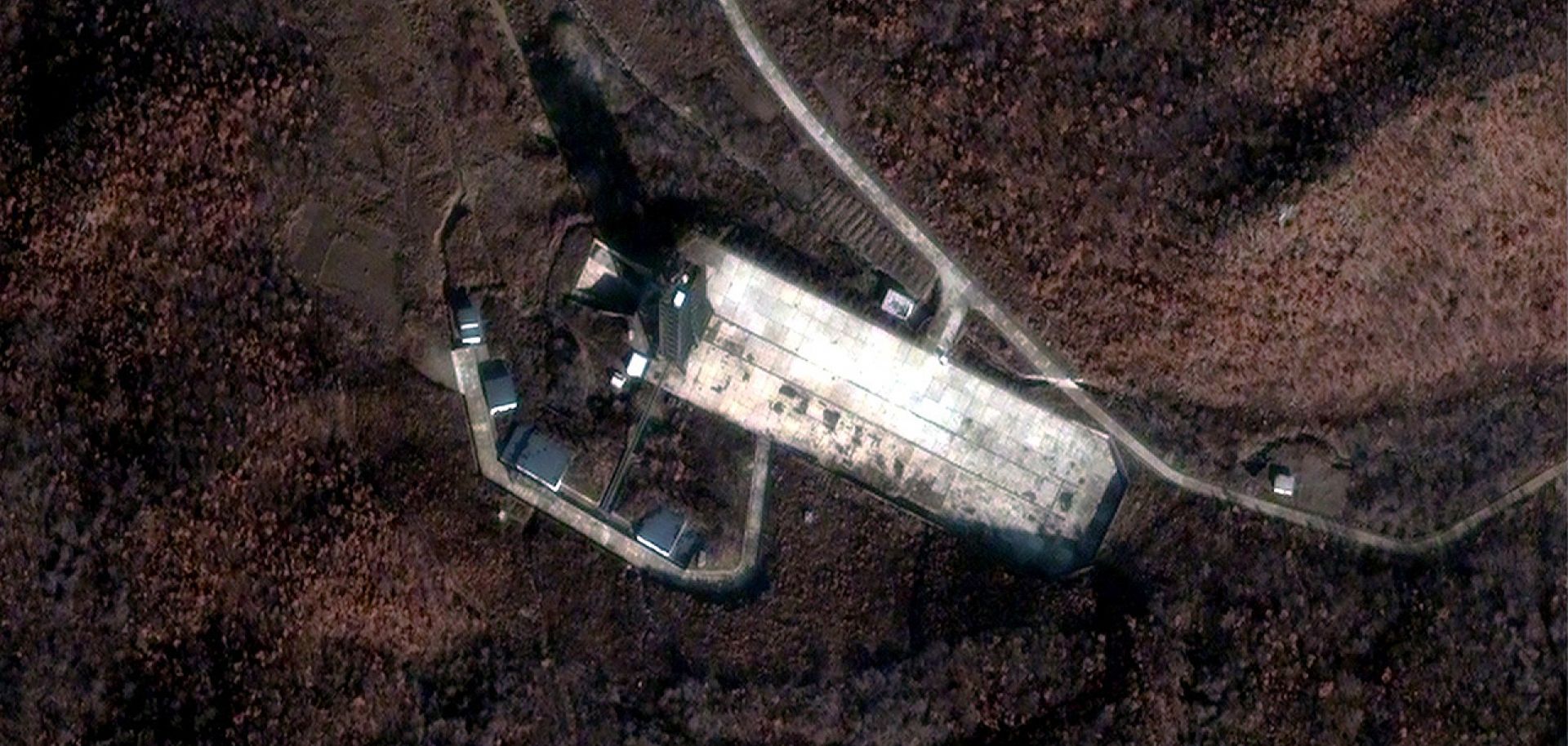ASSESSMENTS
North Korea's Satellite Diplomacy
Apr 13, 2012 | 01:22 GMT

DigitalGlobe
Summary
North Korea reportedly launched its Unha-3 satellite launch vehicle at 7:39 a.m. on April 13. The missile broke up within the atmosphere shortly after launch, a U.S. Defense Department official said. The satellite launch (graphic) has surrounding nations once again reassessing their ability to influence Pyongyang's behavior. Before the launch, Japan renewed sanctions, the United States decided to suspend delivery of new food aid, and Washington and Seoul were considering requesting condemnation and potential sanctions from the United Nations — though China and likely Russia will work to moderate such pressure.
But international attention could be one of the core drivers of North Korea's decision to launch. Combined with the ascent of Pyongyang's new leadership and other factors, the event has opened an opportunity for the country to improve its relationships with international actors without appearing to compromise its independence. North Korea has been preparing for a diplomatic offensive since long before the launch was announced in hopes of expanding international economic ties and reducing its dependence on China. The international community's response to the launch will influence the degree to which Pyongyang pursues diplomatic gains in place of once again escalating tensions on the Korean Peninsula.
Subscribe Now
SubscribeAlready have an account?
